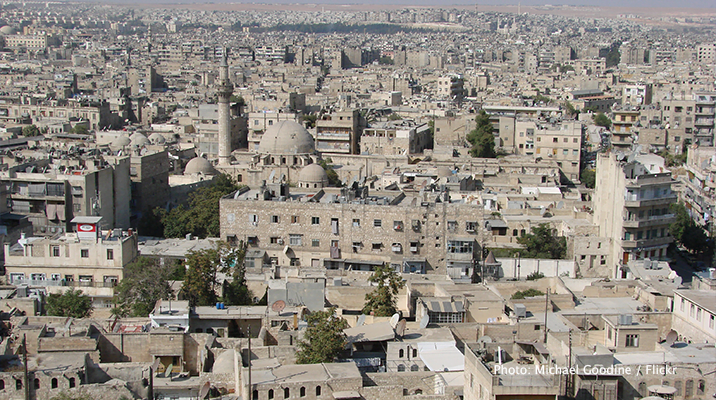The conflict in Syria has been ongoing for six years and is now the worst humanitarian crisis in the last five decades. The documentary “The War Show” illuminates how peaceful uprisings were met with massive violence, and how extremism grew and escalated. But it is also a documentary about humanity. It is a documentary about love, friendship and the will to stand up against injustice. It is a documentary about the strength of the Syrian people.
In “The War Show” we follow radio host Obaidah Zytoon and her friends when they join the protests against Bashar Al-Assad’s regime in Syria in 2011. Zytoon films her friends, their life and how they take part in the uprisings, demonstrations and daily struggle to challenge the power monopoly of the regime.
Wherever they go, Zytoon always brings her camera. She records everything that happens and her camera becomes a tool in the attempt to bring democracy to Syria. As she says: “The regime’s biggest fear was those who held cameras.”
The young people we follow in the documentary have fun. They laugh, play around, go to the beach, and live their lives like young people do. They are aware of the danger of being part of the civil and political opposition, but at the same time they believe in a good life and that a good future is possible. They believe in a peaceful future without the regime.
The conversations between the friends give an insight into some of the dilemmas activists working for a democratic society might face. When is the protest meaningful? When do you need to compromise? When do you resist even if you risk losing your life?
When Peace is Met by Violence
The documentary is divided into seven chapters: Revolution; Suppression; Resistance; Siege; Memories; Frontline; and Extremism. By narrating the film like this, Zytoon shows how the situation in Syria spins out of control. What started with peaceful demonstrations and a common desire for reforms turns into a violent conflict where extremist groups can develop and proliferate.
Though the uprisings were peaceful and unarmed, the regime met the protesters with a high level of violence. “Demonstrations turned into funerals,” Zytoon says at one point. The violence combined with rising numbers of detained and arrested people creates tension and angers the population. With her camera, Zytoon tries to capture the frustration that settles in the Syrian people, while at the same time capturing the ongoing attempts to bring peace and democracy to the country. No matter the obstacles, the Syrian people are determined not to give up.
Zytoon brings her camera to areas where the conflict has been really damaging. Like in the city of Homs, where a siege imposed by the government has starved and devastated the inhabitants. Whenever people see her camera they run to her and show her wounds from torture, captivity and violent interrogations. Everyone wants to tell their own stories of horror to the camera. And they want to share that they will keep protesting and fighting until the regime is overthrown.
The Strength of the Syrian People
“The War Show” was screened at the FIFDH Festival in Geneva, and the organisers invited Zytoon to come to the festival and participate in the event. She kindly declined the invitation, because she said she could not watch the film again. She could not relive the memories. “The War Show” documents many of the horrors the regime has imposed on its people. There are very disturbing images and the faiths of some of Zytoon’s friends are terrible and heartbreaking.
But as Annie Sparrow, doctor and health activist working in Syria, said after the screening of the film, what makes this documentary so strong and moving is that it is not just footages of death, violence and explosions. The documentary is a testament to the humanity still lingering in Syria.
Sparrow has worked in conflict and war zones all over the world. But according to her, the case of Syria is unique: “I can’t think of another war where I’ve worked, where I’ve seen this kind of strength,” Annie Sparrow said. According to her, the documentary is a film about life. And it shows the world that there is still more life in Syria than death.
“Syrians didn’t go to the streets in 2011 to die. They went to the streets to live,” she said.
”The War Show”, Directed by Obaidah Zytoon and Andreas Dalsgaard, 2016, 100 minutes.







